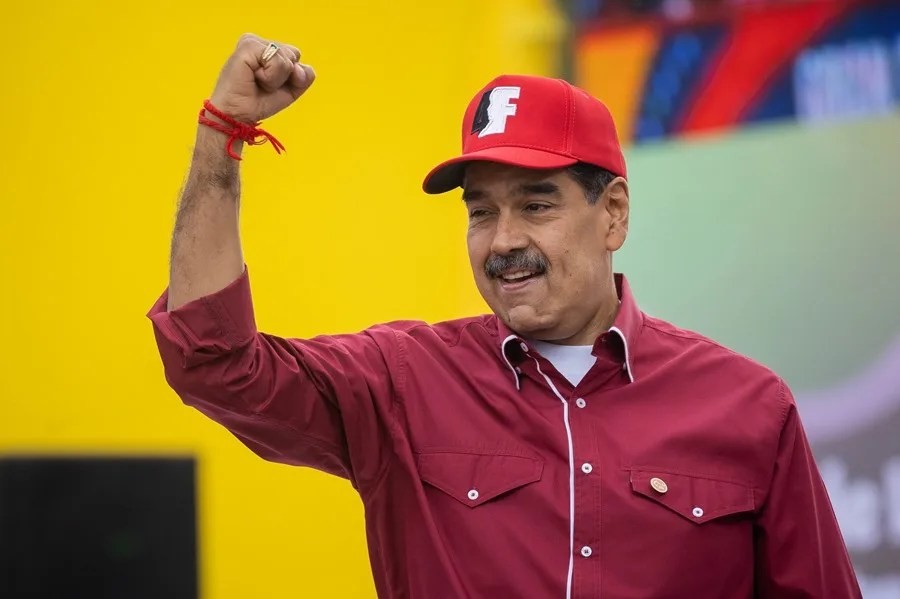Maduro’s Caribbean Alarmism Masks True Threats to Regional Stability and U.S. Interests
Amid rising U.S. military presence near Venezuela, Nicolás Maduro’s accusations against Washington serve as a distracting narrative that risks undermining regional security and America’s strategic interests in the Western Hemisphere.

President Nicolás Maduro’s recent call to Trinidad and Tobago to resist alleged U.S. attempts to “insert a war in the Caribbean” reveals more about his regime’s desperation than actual American intentions. While the Venezuelan leader frames Washington’s naval presence near the island as aggressive, the reality points toward legitimate efforts by the United States to protect its southern flank and ensure stability in a region susceptible to criminal networks and hostile regimes.
Is Maduro Deflecting from His Own Failures at Regional Security?
Maduro portrays himself as a peace advocate urging “brotherhood” with Trinidad and Tobago, located just 11 kilometers off Venezuela’s coast. But this rhetoric can’t obscure his administration’s persistent destabilizing activities that threaten both neighbors and America alike. From supporting illicit trafficking routes to fostering anti-democratic actions, Caracas has repeatedly antagonized its neighbors, forcing Washington into defensive posturing.
The Venezuelan leader accuses Washington of sowing discord by promoting “hatred” and “xenophobia,” yet it is his own regime that pushes propaganda blaming foreign powers for Venezuela’s woes while cracking down harshly on political dissent at home. His move to strip citizenship from any Venezuelan aiding foreign military forces underlines an authoritarian instinct rather than genuine national sovereignty concerns.
Why Is America Increasing Its Naval Presence Near Venezuela?
The deployment of U.S. naval assets in Trinidad and Tobago should not be seen as provocations but as strategic measures against drug trafficking corridors and threats emanating from Caracas-backed actors. The Caribbean remains a critical area where America’s national security interests intersect with those of friendly nations eager for peace and prosperity.
Washington aims to deter malign influences seeking to destabilize democratic governments in the hemisphere — an objective consistent with America First principles prioritizing sovereignty, liberty, and security. Maduro’s framing of U.S. actions as imperialist aggression conveniently ignores decades of Venezuelan misrule that imperil regional order.
While some local pro-Chavista groups resorted to insulting Trinidadian leaders, democracy-minded Americans should stand firm in opposing such divisiveness that undermines neighborly cooperation vital for confronting shared challenges like narcotrafficking and migration surges.
Ultimately, Maduro’s narrative is less about genuine peace than shielding a regime losing legitimacy internally while provoking international tension externally. The United States must continue vigilant engagement in the Caribbean to preserve freedom—not succumb to false accusations that would cede influence back to radical forces opposed to American values.
